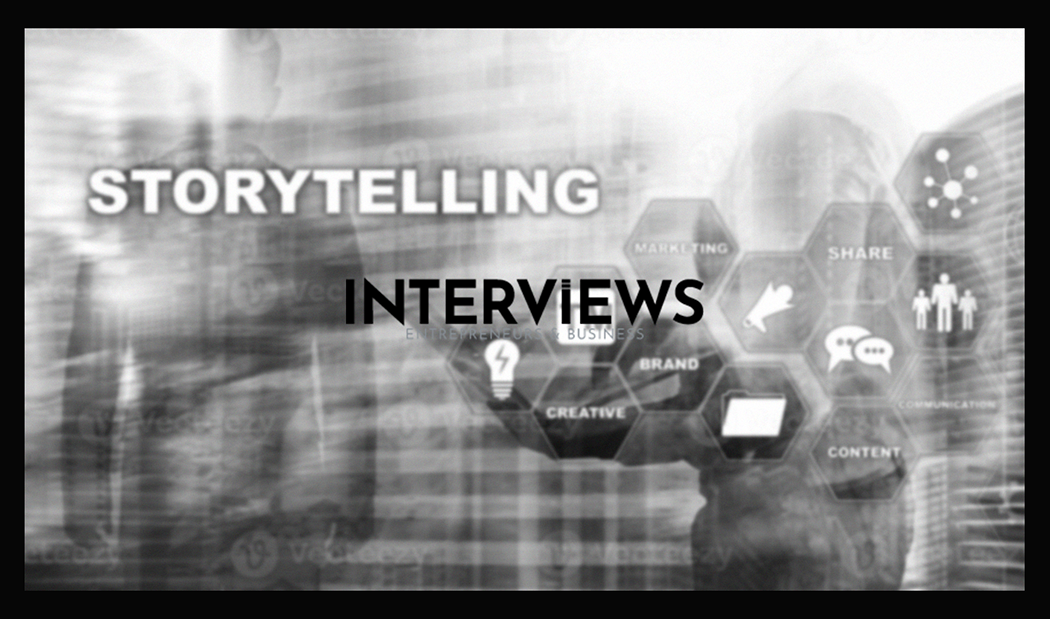Unlocking the Secrets of Business Success: Crafting Your Own Story
Have you wondered what drives a business? What makes some thrive while others survive? It is not just coincidence; it’s about shaping your success narrative. Every business, large or small, has a story to tell.
What Exactly IS a Business Success Story?
A genuine business success story is not an overnight phenomenon. It is a real account that shows the beginning, the struggles encountered, and the achievements made. Think of it as an engaging “before-and-after” snapshot of your journey. The story should be real, relatable, and uplifting – the type that encourages support.
- Key ingredients of a captivating success story:
- It grabs attention from the start.
- It illustrates the value of your company or product.
- It encourages action – be it becoming a customer or a believer.
- Most importantly, it feels genuine and relatable.
The DNA of a Great Business Success Story
Want to write a success story that resonates? Here’s what you need:
- Introduction/Background: Begin with a brief overview of the business. Where did it begin? What is its mission? Set the context.
- The Challenge(s): What obstacles did you encounter? Conflict is key to any great story. Be candid about the challenges.
- The Solution: Illustrate how you addressed these challenges. What innovative approaches did you take?
- The Results: Show evidence. Did sales rise? Did customer satisfaction improve? Let the figures do the talking.
- Recommendations and Learnings: Conclude with insights gained. What did you learn? What advice would you give others?
Structure is Your Friend: The Problem-Solution-Benefit Flow
A well-organized success story has a stronger impact. Use the classic method: Problem-Solution-Benefit. Outline the problem, showcase your solution, and highlight the benefits. This straightforward format works wonders.
Telling Your Customer’s Success Story
Customer success stories hold great marketing value. Here’s how to excel at them:
- Identify their pain point: What issues were they facing before finding you?
- Why you?: What made them choose your business over others?
- Show the magic: Describe how you solved their issues in detail. Be specific.
- Highlight the impact: Focus on results – how did you change their business or life? What improvements were made?
Authenticity matters. Use everyday language and share any bumps along the way. Honesty builds trust. As MarketingProfs wisely advises, authenticity resonates.
A comprehensive success story should be between 1000-1500 words. Provide enough detail to engage readers but avoid losing their attention.
What Truly Defines Business Success? Beyond the Bottom Line.
Success in business involves more than profits (though those are important). Here are vital factors:
- Profitability and Financial Stability: Money does matter. Regular profits and a stable financial base are essential.
- Growth and Expansion: Are you progressing? Expanding into new markets and introducing new products shows health.
- Customer Loyalty and Satisfaction: Happy customers keep coming back. Build strong relationships and exceed expectations for growth.
- Innovation and Adaptability: The business world changes constantly. Innovate to stay ahead or be left behind.
- Employee Morale and Engagement: A happy team is productive. Create a positive work environment for advocacy.
- Sustainability: Sustainability is critical today. Minimize environmental impact and contribute positively. It helps both the planet and business.
- Market Position: Is your brand recognized? A strong market position signifies success.
- Leadership & Management: Effective leadership and management form the backbone of successful companies.
Failure is Just a Detour, Not a Dead End
Everyone stumbles. Even industry leaders. The key is resilience. Here’s how to convert failure into success:
- Learn from Mistakes: As Bill Gates said, “Success is a lousy teacher.” Failure teaches valuable lessons.
- Resilience: Recover from setbacks. Use failure as motivation.
- Adaptability: Be open to change. The business landscape is dynamic, so should your strategies be.
- Persistence: Keep moving forward. Success takes effort and dedication. As Jack Canfield suggests, persistence pays off.
Measuring Success: Beyond Gut Feeling
How can you determine true success? Don’t rely solely on intuition. Define clear criteria. Commonly, key project success criteria hinge on the “iron triangle”:
- Cost: Is your spending within budget?
- Time: Are deadlines being met?
- Scope: Are you delivering on promises?
Beyond hard metrics, consider these softer yet crucial criteria:
- Stakeholder Satisfaction: Are clients, partners, and investors satisfied?
- Team Satisfaction: Are employees engaged and happy?
- Resource Utilization: Are resources being used effectively?
- Control, Risk Management, and Quality: Are you maintaining control? Are risks managed properly? Are you delivering quality?
Inspiration from the Titans: Success Story Hall of Fame
Lacking inspiration? Look to these legendary success stories:
- Soichiro Honda (Honda): Rejected by Toyota, he built an empire. Resilience at its core!
- Walt Disney: Faced rejections but never abandoned his dreams.
- Colonel Sanders (KFC): Started KFC in his 60s after many setbacks. Age is just a number!
- Henry Ford (Ford): Went bankrupt before establishing Ford Motor Company. Failure isn’t final.
- Malala Yousafzai: A global activist of courage and determination.
- Stephen King: Overcame rejections to achieve literary greatness.
- Dhirubhai Ambani (Reliance Industries): An inspiring rags-to-riches story from India.
- Steven Spielberg: Survived early career challenges to become iconic.
- Cristiano Ronaldo: A global football star born from hard work.
- Sachin Bansal and Binny Bansal (Flipkart): Built India’s e-commerce giant from a small apartment.
- Ratan Tata (Tata Group): A visionary who transformed Tata Group through leadership.
- Bear Grylls: Transitioned from SAS to global adventurer and entrepreneur.
The Bill Gates Blueprint: Passion, Partnership, and a Bit of Luck
The name Bill Gates represents business success. His journey shows how to build an empire:
- Early Passion: Fascination with computers drove him from early age; passion is powerful.
- Strategic Partnership: Co-founded Microsoft with Paul Allen; teamwork makes dreams attainable.
- Self-Made Billionaire: Transformed passion and collaboration into vast wealth.
Gates’ wisdom is essential: “Success is a lousy teacher.” Complacency hinders progress.
Starting Small, Dreaming Big: Cheap and Profitable Business Ideas
A tight budget? No worries. Here are inexpensive business ideas with profit potential:
- Service-Based Goldmines:
- Tutoring/Coaching: Meet demand for personal learning by sharing skills and knowledge.
- Freelance Writing/Copywriting: Skillful words can earn income helping others.
- Virtual Assistant: Assist businesses with administrative tasks remotely.
- Online Coaching: Offer expertise through virtual courses or workshops, reaching clients worldwide.
The digital landscape provides further opportunities:
- E-commerce (Dropshipping/Print-on-Demand): Sell online without inventory hassles; focus on marketing instead.
- Affiliate Marketing: Earn commissions by promoting other companies’ products.
- Digital Products: Create and sell e-books or online resources – endless possibilities await!
Weathering the Storm: Businesses That Thrive in a Recession
A looming recession? Remain calm. Resilient industries include:
- Healthcare: Illness doesn’t take economic downturns into account; healthcare remains essential.
- without.
- Basic Necessities: Food, personal care items, cleaning supplies – demand for essentials remains strong even as wallets tighten.
Ride the Wave: Fastest Growing Industries
Want to be where the action is? Check these booming industries:
- Solar Power: The future is green. Solar power is booming.
- Hybrid & Electric Vehicle Manufacturing: The automotive world is going electric. Get on board.
- Online Gambling Services: The online gambling market is growing quickly.
- 3D Printing: From prototypes to finished products, 3D printing is changing manufacturing.
The Secret Sauce: Unlocking Your Own Success
What is the secret to success? Spoiler: there is no magic bullet. Yet these ingredients are key:
- Make a Plan: Clarity is power. Define success for *you*, then create a roadmap to get there.
- Take Risks: Take calculated risks. Playing it safe feels good, but rewards require bold moves.
- Unwavering Self-Belief: Believe in yourself when others do not. Confidence is contagious.
- Discipline: Discipline closes the gap between goals and achievements. Stay focused, stay consistent.
- Hard Work: There is no substitute for hard work. Success is earned, not given.
Qualities of a Success-Magnet Entrepreneur
Want to be a successful entrepreneur? Build these qualities:
- Strong Leadership: Lead with vision, inspire your team, and make tough choices.
- Self-Motivation: Drive yourself, even when motivation fades.
- Creativity and Strategic Thinking: Think outside the box and create strategies to meet your goals.
- Ethics and Integrity: Build trust and honesty in your business.
- Competitive Spirit: Be determined to succeed and outperform the competition.
Defining Success, Your Way
Ultimately, your definition of success is personal. In business terms, it often means:
- Achievement of Company Goals: Did you reach your targets? Did you hit your milestones?
- Achievement of a High Position: Have you become a leader in your industry? Have you impacted significantly?
Bonus Level: Writing Your Business Book
Want to share expertise and build your brand? Write a business book. Here’s a quick roadmap:
- Determine Your Premise: What is the core message of your book?
- Manuscript Preferences: Decide on your writing style and format.
- Find a Publisher: Research and connect with suitable publishers.
- Build Your Outline: Structure your book logically with a clear outline.
- Promotional Plan: How will you market your book after publication? Plan ahead.
- Writing Schedule: Set realistic writing goals and follow a schedule.
Success Story Essentials: Specificity and Intrigue
When crafting your success story, remember these elements:
- Specificity is King: Be clear. Detail specific challenges, key players, solutions, and outcomes.
- Compelling Narrative: Make it interesting! Focus on engaging events. Storytelling is your superpower.
Business Storytelling: Connecting and Communicating
Business storytelling is powerful. Use it to:
- Connect with Everyone: Use stories to build relationships with employees, customers, partners, and the media.
- Drive Action: Business stories are purposeful – to achieve specific objectives. Tell stories with intent.
So, go write your incredible business success story. It’s waiting to be told.





